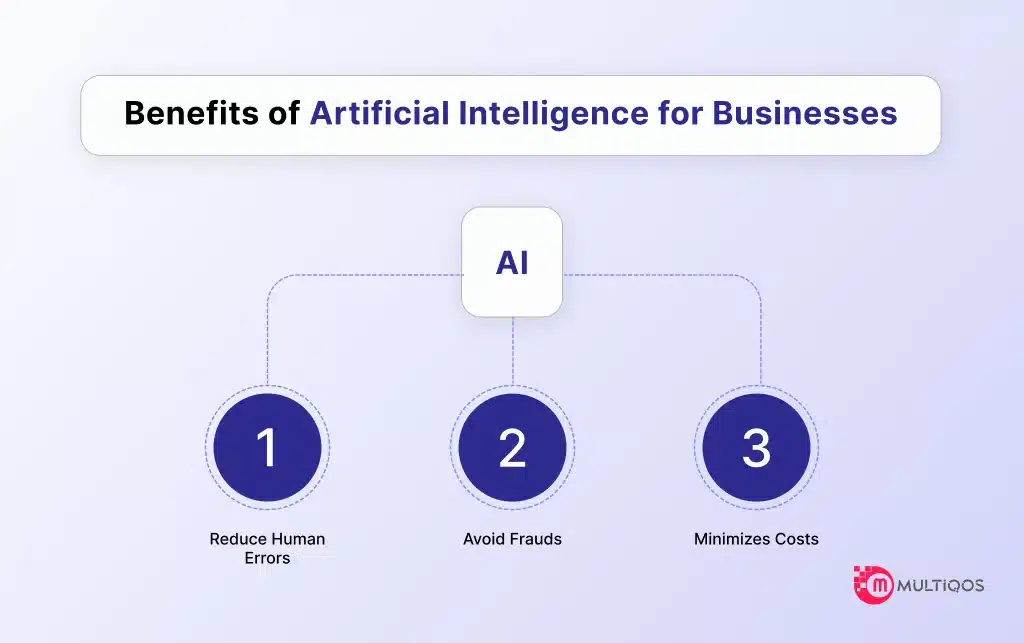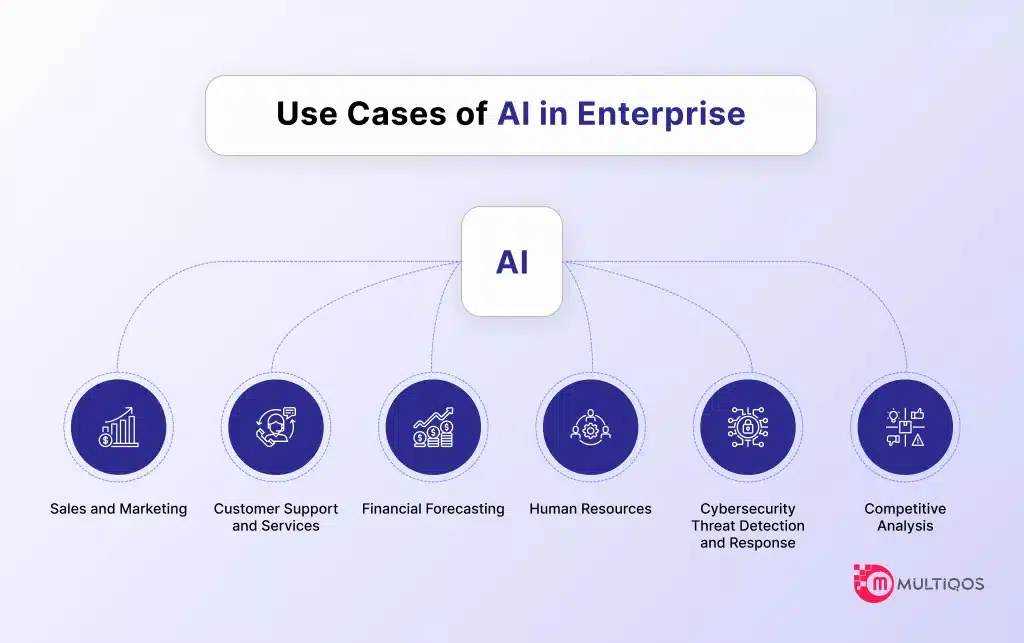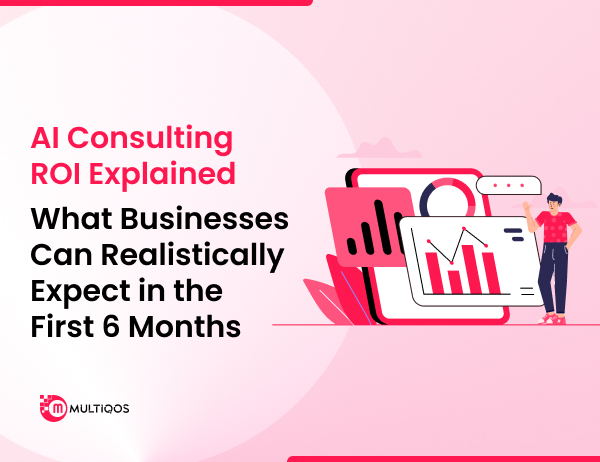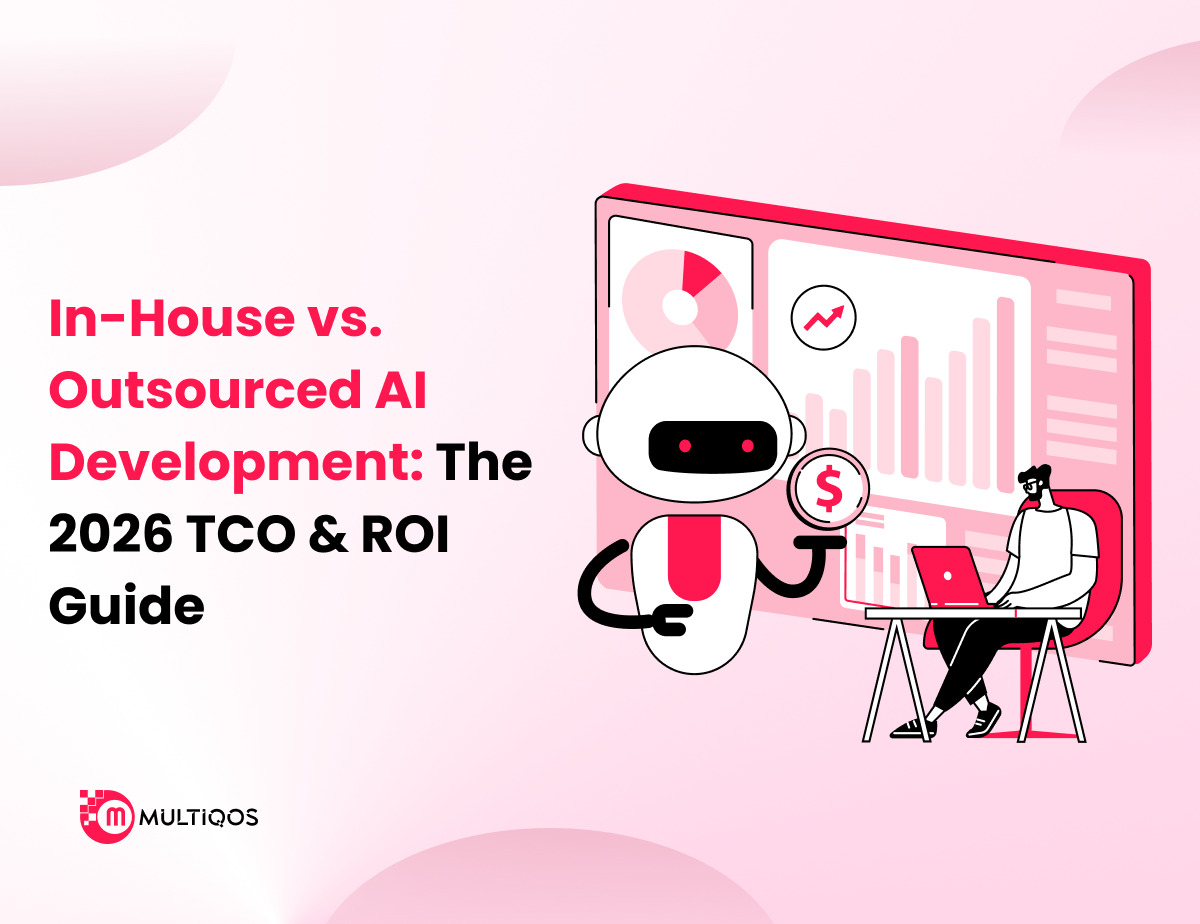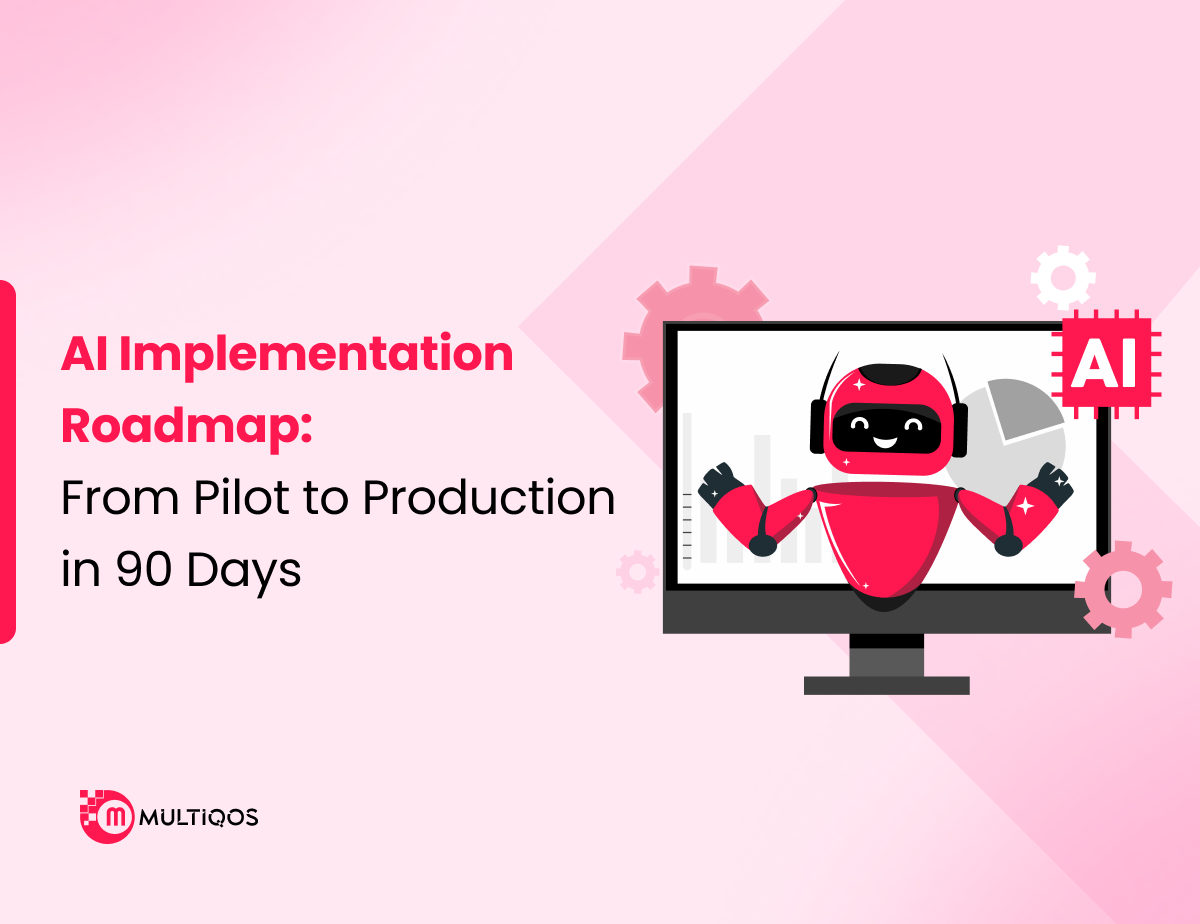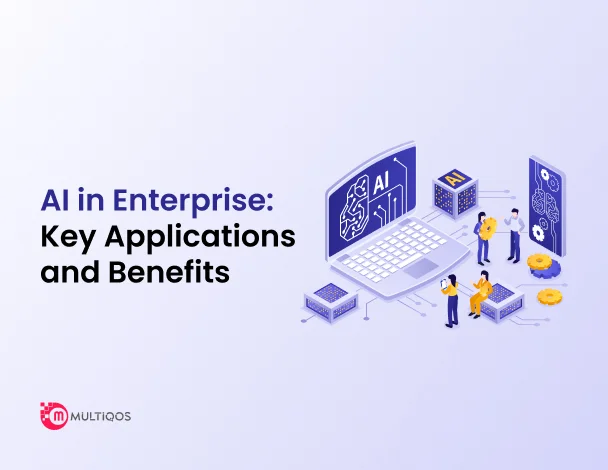
Table of Contents:
Artificial Intelligence has transformed the world with innovative solutions to solve problems. Just like other domains, enterprises have also started leveraging the power of AI to unlock its potential for their own benefit.
AI and Machine Learning bring vast benefits to both enterprises and their customers. They help in improving customer experience, enhancing operations, and increasing business efficiency resulting in increased revenues and output.
As the business landscape is continuously evolving with the introduction of new technologies and methods, enterprises need to stay abreast of them to remain competitive. The adoption of artificial intelligence is a strong step in this realm.
But what does AI bring to enterprise and how can they benefit from it? This comprehensive article on the use cases of AI in enterprise helps you answer these questions. You can understand how enterprise AI can elevate your business.
Benefits of Artificial Intelligence for Businesses
As a revolutionary technology, AI has a huge impact on different aspects of a business. From streamlining operations to minimizing costs, it provides unprecedented advantages to businesses. The following are the key benefits of AI for businesses.
- Reduce Human Errors: Labor-intensive processes are prone to mistakes that lead to human errors resulting in failures or sub-par services. Luckily, AI can help reduce human errors by automating repetitive tasks and minimizing manual interventions.
- Avoid Frauds: With the continuous rise of online threats, frauds have become widespread. AI algorithms can be leveraged to identify suspicious activities, prevent financial losses, and analyze user behavior with the use of self-learning neural networks. Consequently, it can discover anomalies and unusual behavior that can indicate fraud.
- Minimizes Costs: AI also plays a crucial role in minimizing the costs for businesses. After integrating AI into the processes, businesses can avoid waste and labor expenses that reduce the overall cost of operations.
Use Cases of AI in Enterprise
With a vast amount of applications of enterprise AI that span across numerous functions and domains, artificial intelligence opens a door to opportunities for businesses. The following are the prime use cases of artificial intelligence that unlock vast potential for businesses.
Sales and Marketing
Artificial Intelligence is playing a crucial role in businesses. There are many tasks and operations that can be optimized with the use of AI. Sales and marketing are one of those operations that can be optimized and streamlined with artificial intelligence. Let’s see how AI helps enterprises in sales and marketing.
-
Personalization and Recommendation
Enterprises can leverage the power of AI to analyze customers’ behavior and understand their preferences to recommend products or services. AI-powered recommendation engines can analyze purchase history, ratings, reviews, and other attributes to recommend products and services.
For example, an e-commerce company can get the benefits of artificial intelligence to show recommended products to customers. E-commerce platforms can utilize AI and machine learning to learn customers’ purchasing behavior and provide recommendations.
AI algorithms can analyze a customer’s preference for a product through digital techniques. One of these techniques is the neighbor-based method. In this method, a user’s preference is evaluated depending on the ratings for the nearest neighboring items. It means the ratings given by a user to the nearest neighbor items are a basis for evaluating preferences.
Additionally, enterprises can leverage artificial intelligence for personalized experiences across multiple digital touchpoints. AI utilizes various techniques like reinforcement learning to analyze customer behavior to personalize content and user experience.
-
Customer Segmentation and Targeting
Understanding and dividing customers into groups logically helps you target them effectively. Indeed, by defining customer groups, you can understand their unique preferences and offer personalized marketing.
Artificial Intelligence is proficient in segmenting customers according to purchasing patterns, customer preferences and behavior, demographics, and other attributes. By using cluster algorithms such as density-based clustering (DBSCAN), hierarchical clustering, k-means, and more.
These algorithms categorize customers based on different attributes. They analyze customer data and identify the groups. Plus, ML algorithms such as random forests, neural networks, decision trees, and more can be used to create customer segments by analyzing data of new customers.
The segmentation helps offer targeted ads, personalize content, and provide offers and deals that a particular customer segment will like.
-
Sales Forecasting
Artificial Intelligence in Enterprise is quite beneficial for sales-related decision-making. Plus, it can help prioritize leads depending on their possibility of conversion and forecasting sales. Companies can leverage AI that uses various techniques like exponential smoothing, and ARIMA to make predictions about future sales by analyzing historical data.
Machine Learning algorithms such as gradient boosting are utilized to predict conversions by training the model on various historical data of conversion outcomes. These algorithms are able to distinguish high-converting leads from low-converting leads.
Customer Support and Services
The use of AI in enterprises revolutionizes customer services providing efficient and innovative ways to tackle customer problems. Plus, it automates the process and minimizes the costs, human errors, and time. The following are the use cases of AI in streamlining customer service and support for enterprises.
-
AI-powered Chatbots
Gen AI has offered a more powerful way to create conversational chatbots. These chatbots allow customers to get answers to their queries and resolve problems without human intervention. With human-like interactions, these chatbots conveniently help customers resolve queries.
Moreover, advanced chatbots powered by generative AI technology are trained on a vast amount of data. Consequently, they are able to generate human-like responses with high precision to various queries.
These chatbots can adapt their responses to different industries providing enhanced customer experience and satisfaction. Additionally, these chatbots powered by intelligent gen AI can offer 24/7 support to resolve customer issues efficiently.
-
Sentiment Analysis
Another advantage of AI in an enterprise is that it can help analyze customer sentiments. This analysis helps enterprises to understand the customers’ moods and optimize their products or services accordingly.
With the use of machine learning and natural language processing, AI algorithms can analyze large data of feedback to understand customer opinions or sentiments. Plus, it can also analyze social media interactions, reviews, and other sources to give insights into customers’ sentiments.
Enterprises can identify customers’ pain points and preferences with this analysis. Consequently, they can create better strategies for promotion and sales to maximize their profits.
Financial Forecasting
Enterprises can also use artificial intelligence to streamline and automate operations in the finance and accounting domain. Advanced AI algorithms can efficiently analyze market trends, historical financial data, and other information to provide financial predictions to help enterprises optimize their budget.
Artificial Intelligence algorithms can leverage time-series forecasting techniques to predict financial metrics cash flow, expenses, revenues, and more. Machine learning algorithms such as recurrent neural networks are able to identify temporal patterns that enhance the accuracy of financial forecasts.
AI can also be leveraged to model a company’s financial and operations performance accurately. It helps provide insights into the potential opportunities and risks by simulating financial models and stress-testing the models in diverse scenarios.
Also read: Transforming Fintech Industry Through Artificial Intelligence
Human Resources
Artificial intelligence has a vast potential in human resources for enterprises. It can be used to automate repetitive tasks, improve outcomes, and reduce the burden on the human resource department. The following are the uses of AI in enterprises in human resource processes.
-
Screen Candidates and Analyze Resumes
Enterprises can leverage AI techniques such as machine learning and natural language processing to capture relevant candidate information from resumes to discover and sort candidates with matching skills and qualities.
AI can perform resume screening based on criteria already defined. As a result, it reduces human intervention and speeds up the process. Most relevant resumes are automatically identified and sorted.
Machine learning models trained on existing data can analyze key information in resumes to find candidates with relevant skills and experience. Besides, AI in human resources can also help enterprises determine the possibility of success for new candidates by analyzing historically successful hiring data.
-
Training and Onboarding
AI is also quite helpful in smoothly onboarding new employees and training them. Analyzing the performance data, project records, and other necessary information, AI can determine their existing skills and provide insights into learning opportunities.
Cybersecurity Threat Detection and Response
Today, enterprises struggle with the rising cybersecurity threats and their increasingly complex nature. Moreover, enterprises can leverage advanced AI-powered cybersecurity solutions that can help them protect against existing and emerging cybersecurity threats.
AI-powered threat intelligence can help detect emerging threats with behavioral analytics. Apart from this, it can also help minimize threats that arise from human errors or greed. AI-powered cybersecurity solutions ensure comprehensive security with effective defense mechanisms against various cybersecurity threats.
Your enterprise can utilize Artificial Intelligence that is equipped with self-learning models that can analyze user behavior, network traffic, and log files to help you set a baseline for normal activities.
After this AI system can identify compromised accounts and prevent unauthorized access by blocking such accounts. They can identify anomaly detection algorithms and clustering can discover unusual behavior and patterns to mitigate the security risks.
Competitive Analysis
Artificial Intelligence can also help in competitive intelligence. It can gather and analyze information from diverse sources such as competitor websites, social media posts, articles, and market reports to get insights.
The competitive analysis helps gain insights into customer sentiments, industry trends, and competitor strategies. This information will help enterprises create better strategies and business plans. Plus, AI models can be utilized to discover sentiments, opinions, and other information that can help determine the mood of the market.
By analyzing structured and unstructured data from diverse sources, AI models can efficiently identify opportunities and weaknesses for enterprises. It can help enterprises make the best decisions for investments.
To Summarize
The evolution of technology has opened new ways for businesses to grow and expand. Moreover, the advent of AI has taken the market by storm providing innovative methods to solve business problems.
Enterprises can maximize their revenues by leveraging AI, and remove the hurdles that hamper their growth. AI is playing a central role in business strategies and planning today. Hence, the demand for enterprise AI products is expected to rise.
MultiQoS is a leading AI development company with a team of top 1% tech talent. We are proficient in a wide range of AI tools, frameworks, and techniques to help you create cutting-edge solutions for your business.
Our understanding of AI technologies enables us to develop scalable, resilient, and secure AI-powered enterprise solutions. Get in touch with us to get more details on how we can help you make an impact.
FAQ on AI in Enterprise
There is a wide range of uses for artificial intelligence in enterprises including customer services, supply chain management, marketing, finance, cybersecurity, and other crucial functions of an enterprise.
AI automates repetitive tasks, streamlines operations, provides analytics and insights and offers many other benefits to enterprises. For example, AI can be utilized to automate and streamline customer service operations by using AI-powered chatbots.
Similarly, AI-based analytics tools can help enterprises boost their marketing efforts by leveraging data-driven strategies.
Amazon is probably the most suitable example of a company that is leveraging AI to optimize its revenues. The company utilizes artificial intelligence and machine learning on its eCommerce platform to analyze customer behavior and offer product recommendations based on the analysis.
Additionally, the company also leverages AI for various other purposes, especially analytics and process automation. With the use of AI, the company makes strategic decisions that help it drive growth.
As a leading streaming service provider with thousands of titles, it keeps customers always engaged and entertained. Moreover, like other companies, Netflix is not behind in using Artificial Intelligence and it utilizes its technology to enhance customer experience.
Netflix uses machine learning and AI algorithms to identify customers’ interests and recommend the best-suited titles to them. The algorithm analyzes customers’ preferences and several other factors to provide recommendations.
Besides, the algorithms are utilized to identify patterns in watching history and ratings to offer recommendations.
Get In Touch

